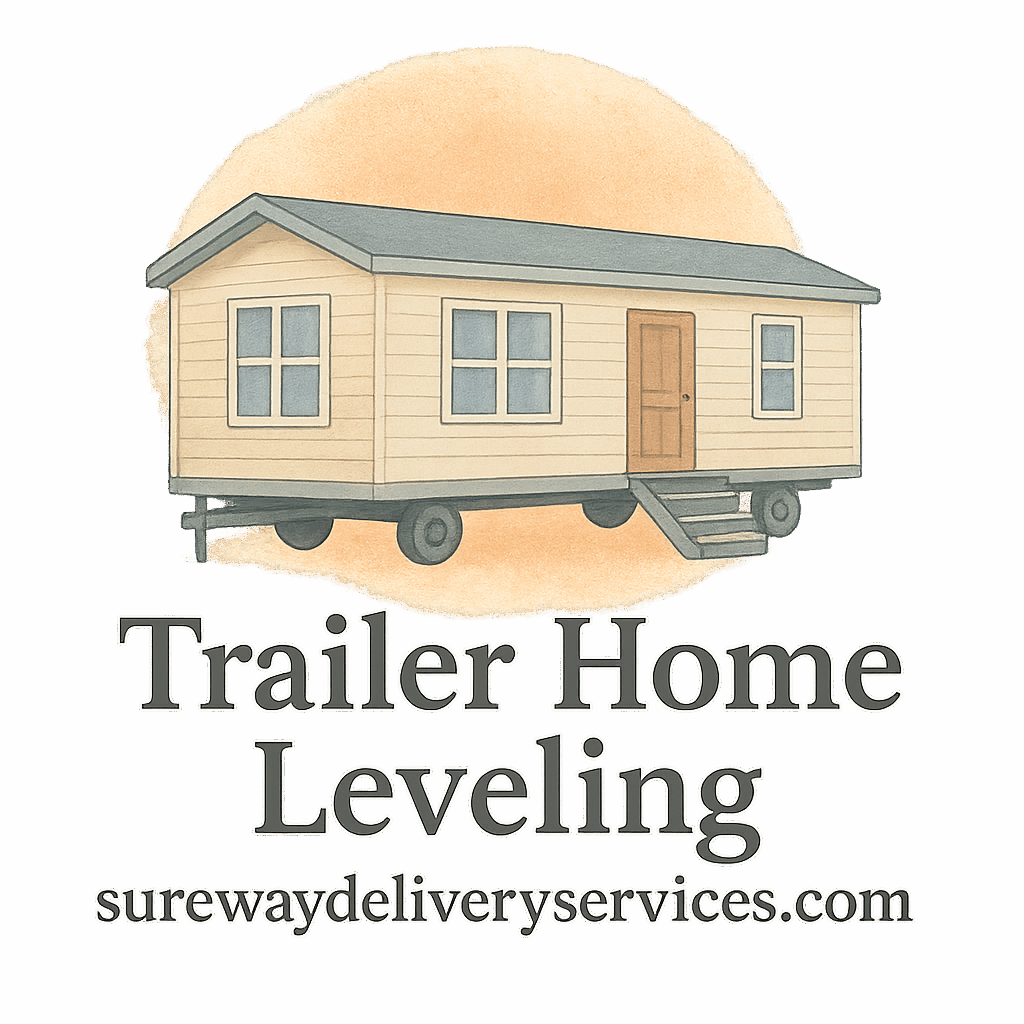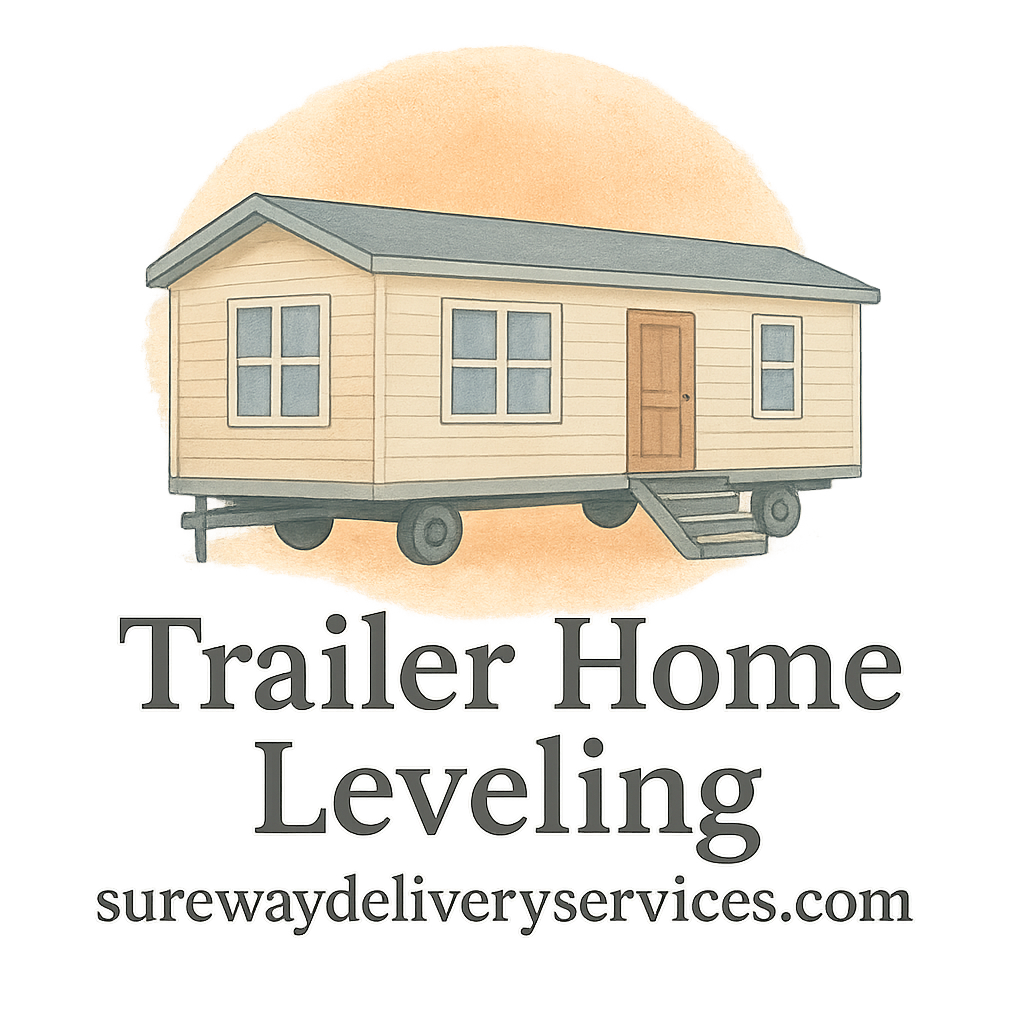Introduction
Thinking about leveling your trailer home? You’re not alone. Thousands of homeowners face this decision every year—”Should I do it myself or hire a pro?” In this article, we break down six critical cost comparisons between DIY and professional home leveling. Whether you’re tight on cash or craving peace of mind, this guide will help you make a smart, wallet-friendly choice.
Let’s dive into the costs, pros, cons, and everything in between so you know what you’re really signing up for.
What is Home Leveling?
Why It’s Essential
Home leveling is the process of restoring a trailer or mobile home to its original level position. Over time, shifting ground, moisture, and structural settling can cause a home to tilt or sink. This not only causes uneven floors and doors that won’t shut but can also damage your home’s integrity.
Check out our Basics & Introduction guide to get the full lowdown on home leveling.
Common Signs Your Home Needs Leveling
- Doors and windows sticking
- Cracks in the walls or ceiling
- Uneven floors
- Plumbing issues
If you notice these signs, it’s time to inspect—learn more in our Inspection & Maintenance post.
DIY Home Leveling Overview
Tools You’ll Need
DIY sounds cheap until you start buying tools. Here’s what you’ll need:
- Hydraulic jacks (preferably bottle jacks)
- Water or laser level
- Pressure-treated wood blocks
- Safety gear
Get more gear suggestions in our Tools Tag Section.
Skill Level Required
Unless you’re handy, DIY leveling isn’t exactly a weekend hobby. It requires:
- Understanding load points
- Confidence in using jacks safely
- Precise measuring skills
If this sounds daunting, the pro route might be safer and more cost-efficient long-term.
Professional Home Leveling Overview
What Pros Bring to the Table
Hiring professionals means:
- Certified experience
- Specialized equipment
- Insurance and warranties
This often translates into better results, especially for complex jobs.
Service Packages Explained
Many pros offer service packages that include inspection, leveling, and follow-up maintenance. These bundles are usually more cost-effective than piecemeal work.
Read more at Service Hiring.

Cost Comparison #1: Tools vs. Equipment Provided
DIYers spend $300–$700 on tools alone. Pros roll up with trucks full of gear that would cost you thousands.
Bottom line: Unless you already own the equipment, hiring a pro can be cheaper and more efficient.
Cost Comparison #2: Time Investment
Time is money, right?
- DIY leveling: 8–20 hours, not including troubleshooting
- Pro leveling: 2–4 hours tops
Factor in your hourly rate. Are you really saving by doing it yourself?
Cost Comparison #3: Quality & Long-Term Durability
Pros use commercial-grade leveling systems that last longer. DIY efforts often need re-leveling in 1–2 years.
Explore proven Techniques & Methods for long-lasting results.
Cost Comparison #4: Safety Risks and Liability
Improper leveling can lead to structural collapse or injury. Professionals are insured—DIYers are not.
Learn more about liability in our Overcharge Tag section, especially if you mess up and need rescue services.
Cost Comparison #5: Maintenance and Follow-Up Costs
A DIY job may require touch-ups every year. A pro job might last 5–10 years.
Check out our tips on Trailer Maintenance and how to extend your leveling job’s lifespan.
Cost Comparison #6: Unexpected Problems and Overcharges
DIY projects often run into surprises—cracked piers, water damage, warped beams.
Pros can also overcharge, so read Customer Reviews and seek multiple quotes.
Use our Cost & Budgeting resource to stay ahead.
Hidden Costs in DIY and Pro Leveling
When DIY Gets Expensive
If you break a jack or damage your foundation, the repair bill skyrockets.
What Can Go Wrong with Pros
Not all companies are equal. Overbilling, missed appointments, and rushed jobs are real risks. Stick with teams that offer a checklist like in our Checklist Tag.
Real-Life Success Stories & Reviews
DIY Wins
Some homeowners have saved big, especially on single-wide trailers. Read Trailer Success Stories for examples.
Professional Touches
For larger or older homes, pros consistently outperform. Visit Home Leveling Tag for customer experiences.
How to Decide: DIY or Hire a Pro?
Ask Yourself These Questions
- Am I confident with heavy equipment?
- Do I have time?
- Can I afford the upfront tool cost?
The Budget vs. Peace of Mind Equation
Sometimes, paying more now saves you tons later.
Still unsure? Check out Trailer Details for tips tailored to your model.
Conclusion
DIY trailer home leveling might save you a few bucks, but it’s not for everyone. You’ll need tools, time, and technical skill. Hiring a pro is faster, safer, and often more cost-effective in the long run.
By comparing tool costs, time investment, quality, safety, maintenance, and unforeseen issues, you can confidently choose the right path for your home and budget.
For detailed leveling tips, head to Trailer Home Leveling.
FAQs
1. Is DIY home leveling safe? Only if you’re skilled with heavy equipment and follow safety protocols strictly.
2. How much does professional home leveling cost? Typically $500–$1,500, depending on the home’s size and condition.
3. What tools do I need for DIY home leveling? Jacks, levels, wood blocks, and safety gear. See our Tools Guide.
4. How long does DIY home leveling take? Anywhere from 8–20 hours based on your experience and issues found.
5. Can I combine DIY with pro help? Absolutely. Some homeowners do inspection and prep, then call in a pro.
6. How often should I re-level my home? Every 3–5 years, or when you see signs. Learn more in our Annual Inspection Tips.
7. Are there warranties with pro services? Yes, many offer 1–5 year warranties. Always read the fine print.


